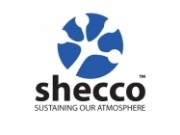We are thrilled to announce the third round of case studies from Scantec Refrigeration Technologies, Strathbrook Industrial Services, and EcoChill, discussing their innovative natural refrigerant-based technologies at the conference taking place in Sydney's Luna Park on 2 May.

The ATMOsphere Review Panel is pleased to announce the first round of case study selections for ATMOsphere Australia 2017 on 2 May in Sydney.
Scantec Refrigeration Technologies | The rise of low-charge NH3 refrigeration systems by Stefan Jensen
Stefan Jensen will discuss the range of current and future applications for low-charge NH3 refrigeration systems including: air conditioning and environment control, food processing facilities, refrigerated warehouses and distribution centers, and mobile engine rooms. Design details, installation images and actual energy performance figures for all commercially operating installations within the above categories will be provided as part of the case study.
Strathbrook Industrial Services | Transcritical CO2 system performance in warm climates by Ian Wilson
Transcritical CO2 systems have varied performance when subjected to changing climates. In warm ambient temperatures, compressor performance varies wildly, with refrigeration capacity falling by half and power consumption doubling.This case study will seek to explain what is happening within the system over a range of climatic conditions and why systems perform poorly when the weather is warm. It will also explain what options are available to overcome poor performance and what the down sides are to each of these solutions.
EcoChill | Perfecting Produce – The success of hydrocarbon systems in the produce distribution industry in New Zealand by Matthew Darby
The successful and rapid uptake of Hydrocarbon systems within the New Zealand produce distribution sector has been driven by an understanding of the overall commercial opportunities Hydrocarbon systems can provide, whilst also being highly efficient refrigeration solutions.This case study will examine the use of Hydrocarbon systems in the produce distribution sector and the benefits they have provided against traditional systems. The study will aim to provide an understanding of how the mentality has shifted from “build a box and make it cold” to seeing the actual competitive advantages of natural refrigeration solutions.
